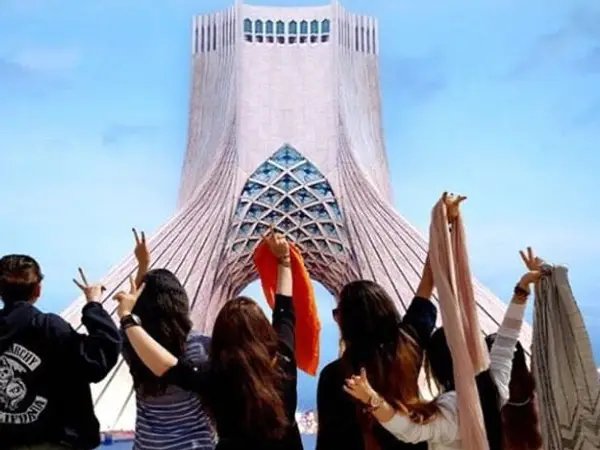Authorities in Iran are harshly cracking down on ‘bad-hijab women’ and will hold a ‘hijab rally’ on Tuesday, but women activists have their own plans to protest.
President Ebrahim Raisi on Wednesday called lack of compliance with hijab rules “an organized promotion of [moral] corruption in Islamic society” and ordered all government entities to strictly implement a “chastity and hijab” law drawn in 2005 by the Supreme Council of the Cultural Revolution.
Authorities have also launched an extensive campaign this year against women they call ‘bad-hijab’. In addition to crackdowns by the ‘morality police’ on the streets, some officials have ordered extra measures, including to government offices, banks, and public transportation authorities to withhold service to ‘bad-hijab’ women.
In the past few weeks authorities have also shut down some businesses such as cafes and restaurants and detained their female patrons for ‘improper hijab’ and arrested nature tourists for flouting their hijab, dancing, and drinking in the depths of northern forests.
In the jargon of religious and political hardliners women who are unwilling to wear the hijab and display their displeasure by wearing small and colorful headscarves with tight-fitting, short dresses are called ‘bad-hijab’ ones.
Meanwhile, authorities this year named the 12th of July as Hijab and Chastity Day and are planning rallies at stadiums and other places to honor, celebrate, and promote the Islamic notion of the hijab (cover) for women.
But women’s rights activists say forcing women to follow a certain dress code is a violation of their human rights. In response to the government’s plans, they have called on women to action against compulsory hijab on July 12, to drop their headscarves in the streets and other public places. The campaign has been dubbed as the ‘NO2Hijab’ campaign.
Activists are also urging men to support the women’s movement by accompanying their wives and daughters on the street when they protest or by posting videos on social media.
Mehdi Hajati, a political activist, in a tweet Tuesday supported the ‘No2Hijab’ movement. The movement is driven by those who are demeaned by the hijab rules and will succeed if protests continue. “Those [who try to enforce hijab rules] will eventually be exhausted [by our protests],” he wrote. Hajati, a former member of Shiraz City Council was expelled from the council in 2018 and was arrested for speaking out against the arrests of two members of the persecuted Baha’i minority.
The anti-hijab social media campaign has once again been spearheaded by US-based activist Masih Alinejad who has been behind several social media campaigns against compulsory hijab over the past decade.
“Many of us remember this fear when we got arrested for the first time by morality police. No other government in the world— not even North Korea—terrorizes women because their hair is showing. The Islamic Republic of Iran is a gender apartheid state,” Alinejad tweeted Friday with a photo of two women in a ‘morality police’ van crying out in horror.
In 2012 Alinejad launched the “Stealthy Freedoms” campaign, which invited women to share photographs of themselves without the hijab. She continued her campaign with “White Wednesdays” in 2017 which encouraged women to wear white headscarves or take them off in protest at the rules every Wednesday. Both campaigns became quite popular on social media.
